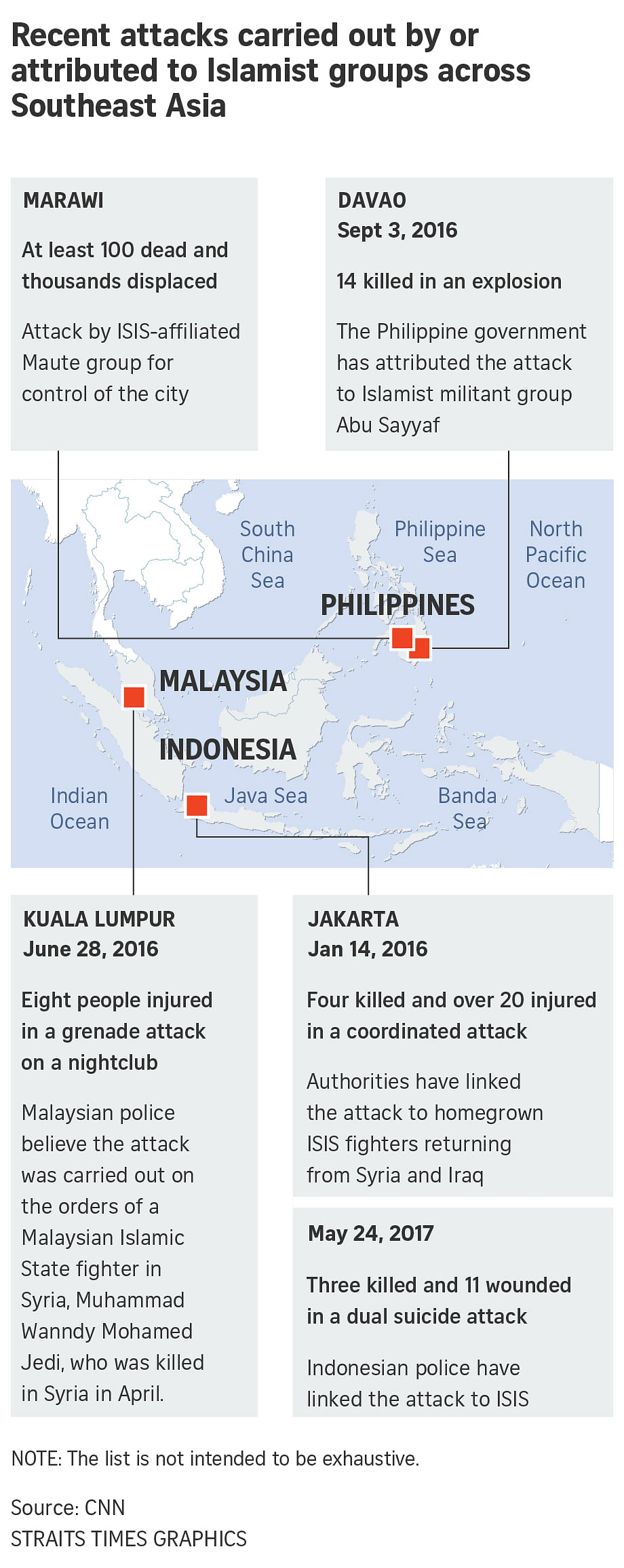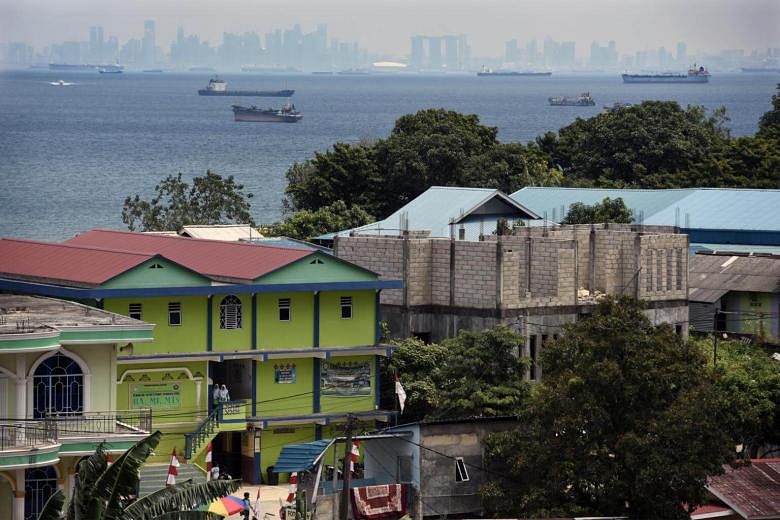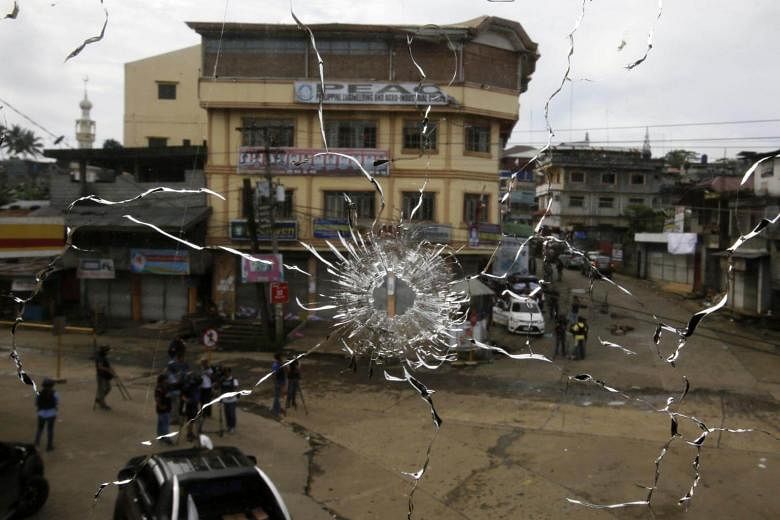SINGAPORE - The terrorism threat to Singapore remains at the highest level in recent years, the Ministry of Home Affairs (MHA) said on Thursday (June 1), as it called on the public to stay alert and be prepared in the event of an attack.
"Singapore was specifically targeted in the past year and the regional threat has heightened," the ministry said in its inaugural Singapore Terrorism Threat Assessment Report.
It noted that even though there was no credible intelligence of an imminent attack at this point in time, security agencies remain on "high vigilance".
"The public should continue to stay alert and be prepared," the ministry added.
The report, which will be published on a regular basis to alert Singaporeans to the security environment, cited the worsening threat in the region arising mainly from terror group Islamic State in Iraq and Syria (ISIS) and its affiliates.
It pointed out that the group has encouraged supporters to carry out attacks in their home countries.

ISIS has been linked to attacks across South-east Asia such as the twin suicide bombings in Jakarta last month, and the grenade attack in Puchong, outside Kuala Lumpur, last year.
In the Philippines, a group calling itself "IS East Asia" overran Marawi city in Mindanao late last month.
While Philippine forces have moved to retake the city, the MHA said the siege of Marawi attests to the group's potential to turn militant strongholds in the southern Philippine island of Mindanao into an "ISIS wilayat" or province for militants in the region.
"Should this entity proliferate into a regional network, like the Jemaah Islamiah had done previously, the terrorism threat will deepen further in South-east Asia," said the report.

Singapore remains a prized target
Closer to home, the threat remains "very serious", the ministry added.
In October last year, an Arabic online publication titled The Fall Of The Idol: External Action And Individual Jihad singled out two entities here as potential targets - part of a wider bid to bring down US and Western interests.
While the MHA did not reveal what the two entities were, it said security agencies had worked with them to enhance security measures. The Straits Times understands the two entities were SGX Centre and a port.
"Singapore is a key target. We have taken part in international coalitions against terrorism, and we represent many things that are anathema to ISIS," said the MHA.
Singapore is a secular democracy, and host to many economic and commercial interests from Western nationals that ISIS considers "infidels", it added.
There have already been two ISIS plots to attack the country that the authorities have been aware of.
In the first half of last year, there was "reliable information" that foreign ISIS militants were considering carrying out an attack, and the authorities moved swiftly and discreetly to mitigate the threat, said the MHA, without providing specifics.
Prime Minister Lee Hsien Loong had alluded to this plot in his National Day Rally speech last year.
Last August, the Indonesian authorities also foiled a plot by Batam-based terrorists that planned to launch a rocket attack against the Marina Bay Sands integrated resort.
Like in many cities, Singapore also faces the risk of an attack by persons and groups influenced by ISIS propaganda.
The report also cited the growing number of radicalised Singaporeans dealt with under the Internal Security Act.
Between 2007 and 2014, 11 Singaporeans were dealt with under the Act. But it has been used against 14 radicalised Singaporeans since 2015.
ISIS propaganda has also radicalised foreigners in Singapore - including some 40 Bangladeshi nationals since late 2015, and eight Indonesian domestic helpers since 2015.
"Radicalised individuals are a grave security concern. The threat they pose is great because they might heed the calls by ISIS to carry out lone-actor attack using any means they have at their disposal," said the ministry.
It added that such attacks can be hard to prevent and happen without warning - as everyday items like cars and knives are used.
Returning fighters and released terrorist prisoners in the region are also a concern.
Given the high likelihood of an attack, a strong community response is critical, the ministry said.
One area where people can play a part is in detecting and reporting radicalised individuals to the authorities if they are unable to rein them in.
"In some of the self-radicalisation cases Singapore has detected previously, there have been friends and family members who have knowingly withheld information from the authorities, either out of denial (that there is a problem) or because they believe misguidedly that they are protecting their loved ones," the ministry said.
"The opposite is true - by alerting the authorities to signs of radicalisation early, friends and family members are in fact helping to save them from harming themselves and those around them."
The ministry added: "The amorphous nature of the enemy we face today means that even though our security agencies will do what it takes to detect and prevent terrorist attacks, they cannot do so alone."
At stake are not just property and lives, but Singapore's identity as a multiracial, multi-religious society, it said, calling on people to play a part in keeping Singapore safe.





